U.S. President Joe Biden announced earlier this month that the United States would withdraw its last active-duty troops from Afghanistan by September 11, which will mark the 20th anniversary of al-Qaeda’s attacks on New York and Washington, D.C. After U.S. and British troops invaded Afghanistan in October 2001, they quickly dislodged al-Qaeda from the country and toppled the Taliban government. As the American occupation continued, Presidents Barack Obama and Donald Trump pledged to end it, but neither succeeded. U.S. costs for the war now top $2 trillion, and more than 110,000 Afghans, along with 2,400 U.S. troops, have died in the conflict. As America’s longest war reaches nearly 20 years, why are American soldiers still in Afghanistan?
Anatol Lieven is a senior research fellow at the Washington-based Quincy Institute. According to Lieven, the United States has stayed in the country largely out of fear that the U.S.-backed government in Kabul will collapse once U.S. troops leave—and that U.S. credibility will be significantly damaged when it does. America and its allies in the European Union and NATO committed to building a functioning and democratic Afghan state, so it will be an admission of failure to leave now, when that state still has little authority beyond Kabul and remains deeply corrupt, says Lieven, who spent time with the Afghan mujahideen in the late 1980s during their war against the Soviet Union, and who has returned to the country many times since the fall of the Taliban in late 2001.
Michael Bluhm: Why is the American military still in Afghanistan after all these years?
Anatol Lieven: What happened was that U.S. credibility, which Washington and, especially, the military are obsessed with, became involved with propping up the Kabul government.
Fourteen years ago, I was talking to an American general, and I asked him if he could define what winning in America meant. He said, Honestly, I can’t, and what’s more, I don’t think that anybody in Washington can. But, he said, we can define what defeat looks like. Defeat looks like Saigon 1975. Panic-stricken Afghan refugees on the roof of the American Embassy trying to get out of the country, all American staff fleeing.
That is why America has kept troops there: It’s because of the fear—a very well-grounded fear—that, once all the American troops and air power have gone, the Kabul government will fall to the Taliban. That will lead to further civil war in Afghanistan, but it would also be a blow to America’s prestige.
I don’t think that withdrawal from Afghanistan will significantly damage America’s prestige, but that’s not the way a lot of people in the American military have previously seen it.
Bluhm: The original stated goals of the United States were to dislodge and incapacitate al-Qaeda, and to topple the Taliban-led government. But once that was accomplished—within two months of the invasion—then the goals started to shift to state-building. In your mind, what was the United States trying to accomplish? What were the goals?
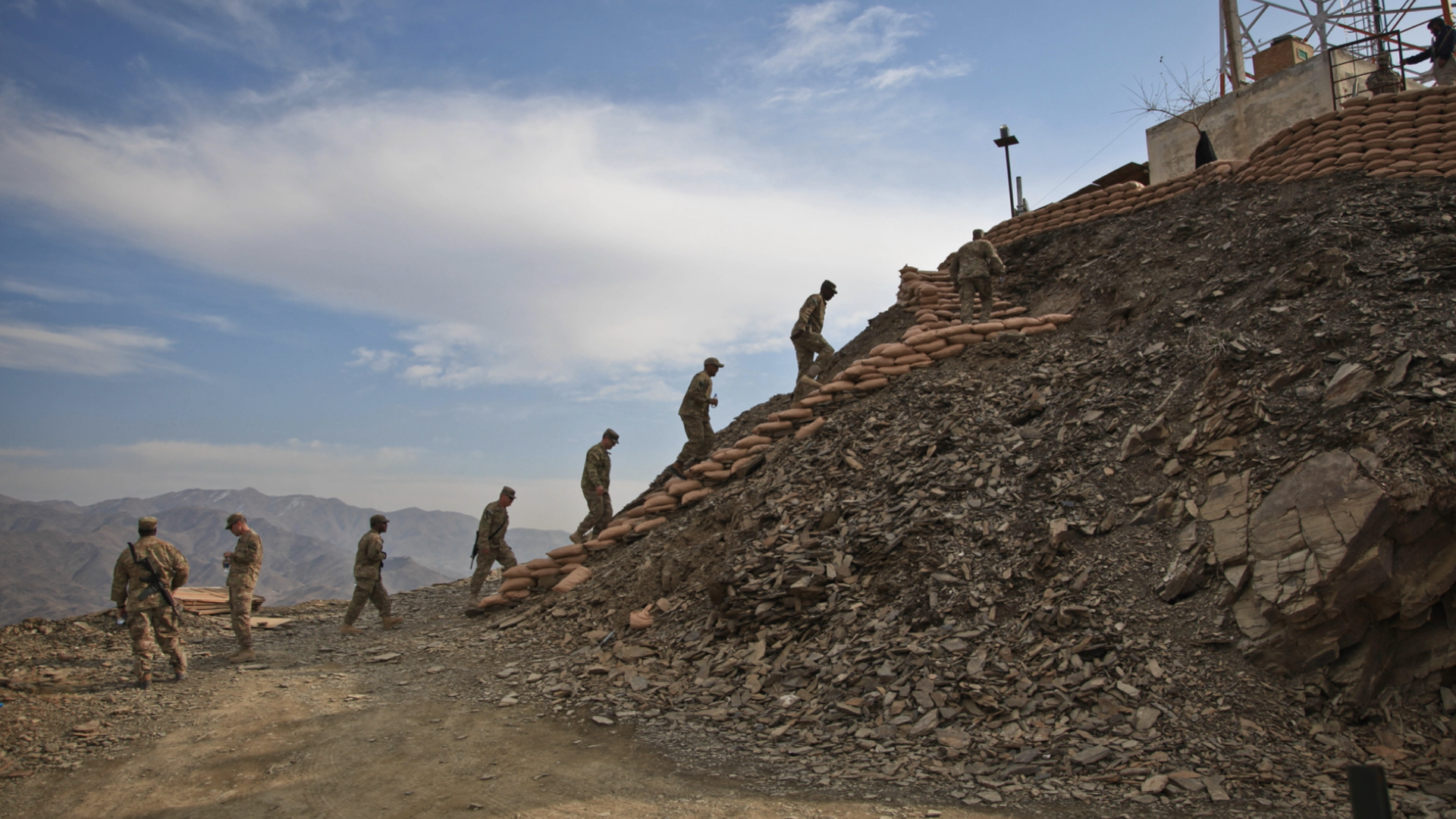
Lieven: Given the original reason for going in was to get rid of al-Qaeda, that was accomplished in Afghanistan quickly. [Former U.S. President George W.] Bush then launched this freedom agenda—the whole business of bringing freedom and democracy to the Middle East. I’m not saying it wasn’t sincere on his part; it probably was. But this was also very, very much part of justifying the future invasion of Iraq.
The problem in Afghanistan was that the United States became committed to building a modern, democratic, free, successful, prosperous Afghan state—something that never existed in the past. You’re trying to build this place from the ground up and do something that no Afghan state had succeeded in doing.
The European Union and NATO, who were desperate to show how they were helping the United States and desperate to show that they could do something useful in the world, took over a large part of the state-building project in completely ridiculous ways. The Italians were given responsibility for law and order. In Afghanistan, I was asked to advise them at one stage, and it was almost surreal—the total ignorance of what they were getting into or what the situation required.
That is why America has kept some troops there: It’s because of the fear—a very well-grounded fear—that, once all the American troops and air power have gone, the Kabul government will fall to the Taliban. That will lead to further civil war in Afghanistan, but it would also be a blow to America’s prestige.
But after you’ve spent years and years saying that you’re building democracy, you’ve basically talked yourself into a corner, from which it becomes very, very difficult to get out; because, ultimately, you have to admit—which I think everybody now admits in private—that you failed. You’ve not built a successful Afghan state, let alone a successful democratic state.
One of the fears was that the Kabul government would collapse, not necessarily because of a Taliban attack, but because of its own internal divisions. Then you would have these U.S. troops and U.S. Air Force trapped in the middle of chaos, and they would have to withdraw in a great hurry. That would be a much bigger blow to credibility than leaving in an orderly fashion.
Bluhm: You mention the difficult idea of failure. I think there might be a kind of awareness among a large part of the American population that Afghanistan certainly doesn’t look like victory. Why did the state-building project fail?
Lieven: For 140-odd years now, there have been attempts to build a modern Afghan state by a succession of Afghan regimes, and they’ve all ultimately failed. It’s an extremely poor country. It’s ethnically divided. It’s tribally divided within the Pashtun population.
People’s allegiances to tribe and to religion trump their allegiance to the state. Most people do not obey the laws of the state. Why should they? The state has always been not just weak, but also desperately corrupt and oppressive. It’s demanded things from the people, but it’s given almost nothing in return, in terms of education, health, clean water, electricity, roads, what have you.
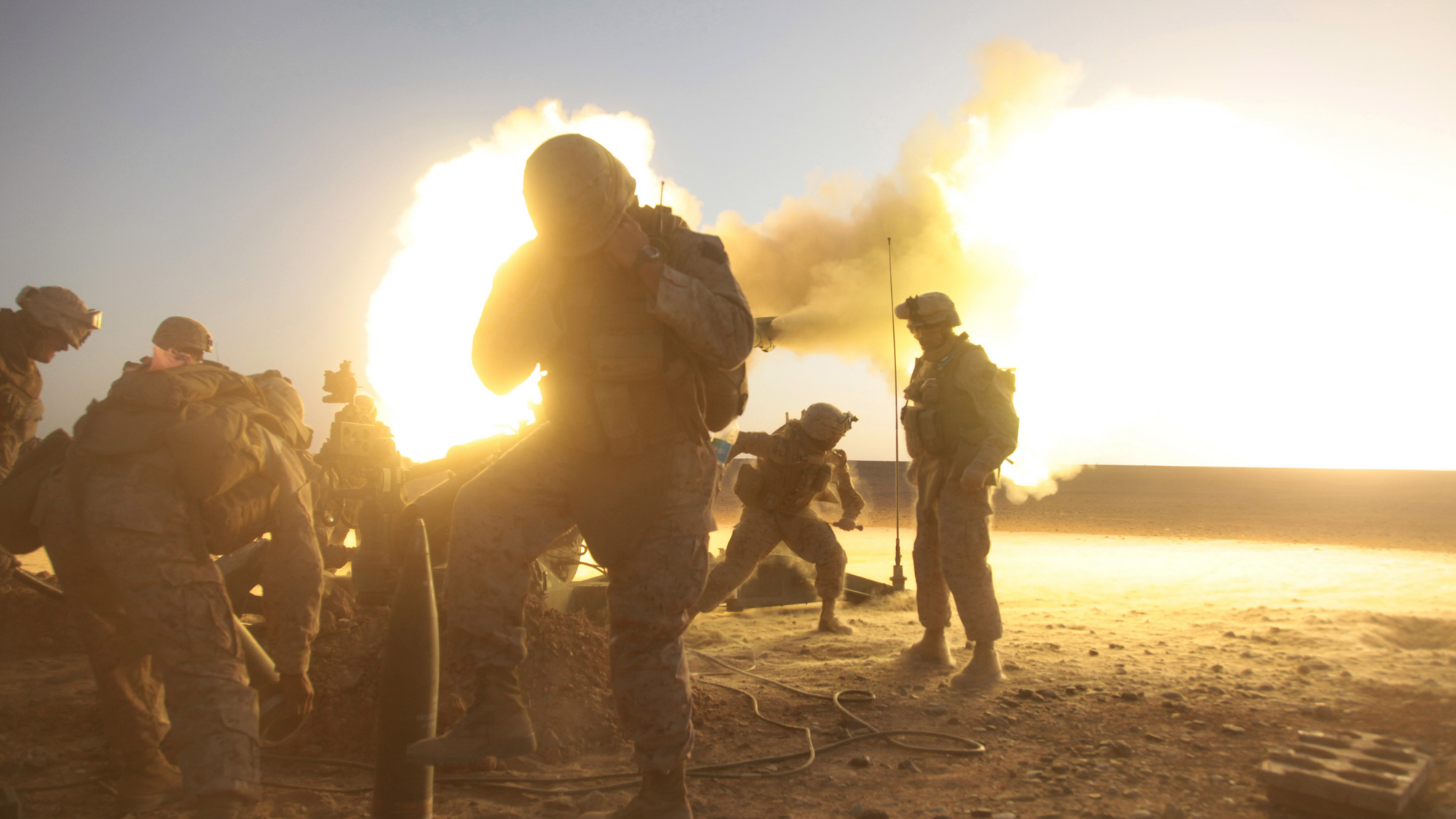
The Pashtuns, who are the biggest ethnicity in Afghanistan and the backbone of the Taliban, have an old history of bitter resistance to outside conquest, especially by non-Muslims. They fought off the British twice. They fought off the Soviets. Why wouldn’t they fight off the Americans?
That’s what many Pashtuns and the Taliban were saying from the beginning: This will be a long fight—they never deceived themselves about that—America is very, very strong. This will be a very hard fight; many of us will die. But we won before. We will win again.
Bluhm: Many observers have said that one of the biggest strategic errors that the U.S. made was its unwillingness to reconcile with the Taliban, because that prevented cooperation with many of the Pashtun tribes who form the majority of the Afghanistan population.
Lieven: That was a terrible problem, and I saw that when I went to Afghanistan after the fall of the Taliban, in 2002. In the language of the global war on terror, You’re with us or you’re against us.
Across southern and eastern Afghanistan, there were a lot of local Taliban commanders who were very willing and even offered to reconcile with the Kabul regime. But all the old warlords, whom America had brought back to power, didn’t want any of the Taliban commanders to come back to power, because it would mean sharing power and mean sharing the heroin trade.
The problem in Afghanistan was that the United States became committed to building a modern, democratic, free, successful, prosperous Afghan state—something that never existed in the past. You’re trying to build this place from the ground up and do something that no Afghan state had succeeded in doing.
The problem is these myths emerge, which then become collective myths of the media, the think-tank world, the Pentagon, the State Department, and everybody starts saying the same thing. Two myths about the Taliban were terribly damaging—and, of course, your own allies on the ground have a strong interest in generating these myths, as well.
The first was that the Taliban were not really, truly Afghan or Pashtun, that they were created from outside by Saudi Arabia. But they came from the villages of southern Afghanistan. That was not something new to Afghanistan; that was something very, very old and deeply rooted in the Pashtun areas of Afghanistan. That was the first myth, which encouraged people to think they’ll be easy to get rid of.
The second myth was that the Taliban had been driven out, fled into Pakistan. Now, the top Taliban leadership did, and some of the core fighters, but the overwhelming majority of the Taliban fighters—as they’d existed in the summer of 2001—went home to their villages. They hadn’t gone away.
We had not eliminated these people, nor could we have eliminated these people, because they constituted a huge part of the Pashtun population.
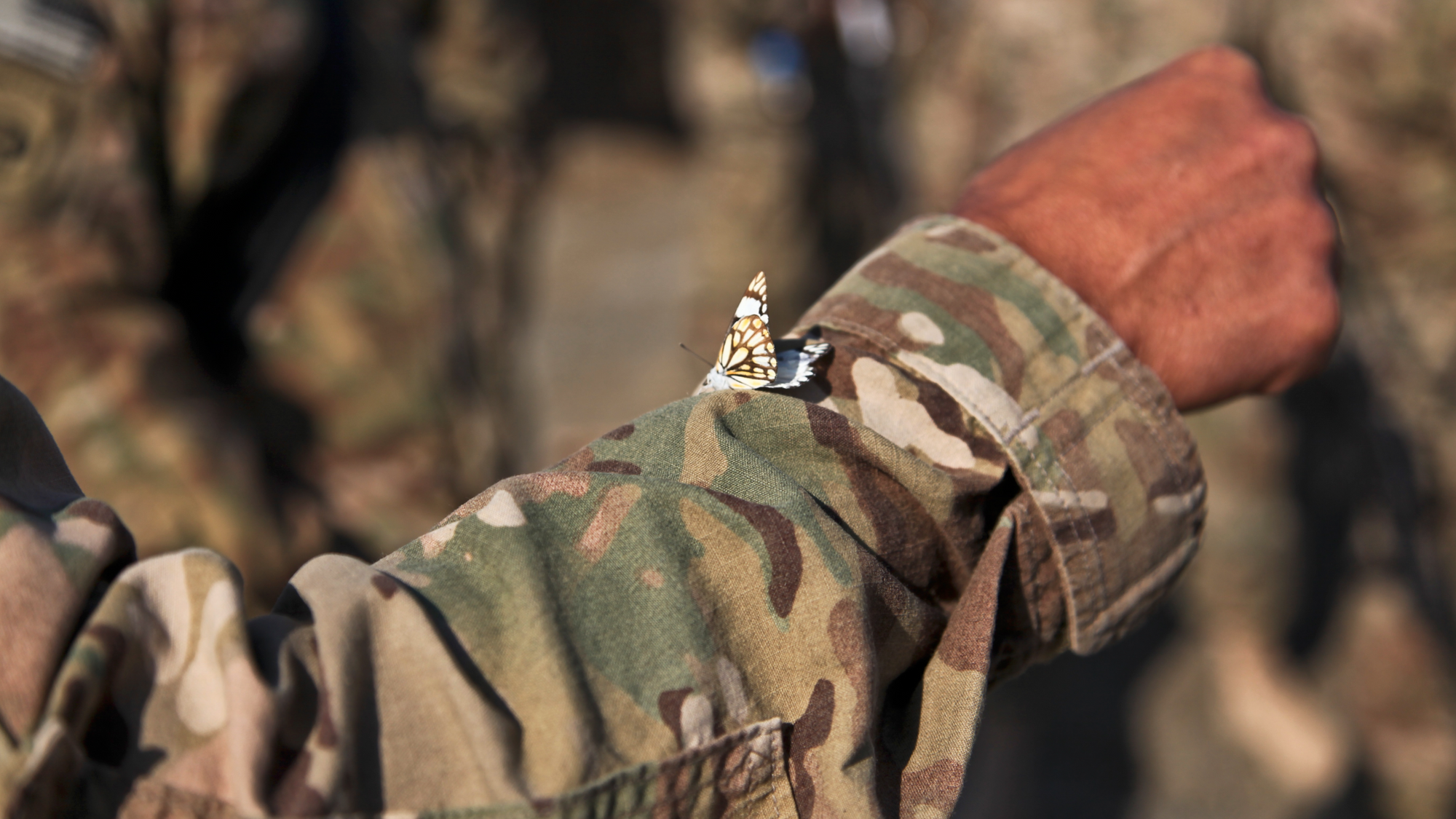
When I came back from Afghanistan in 2002 and 2003, and I said, Look, they’re still there, and we’ve got to talk to them, the response from everybody in Washington was, We don’t talk to terrorists. Now, of course, we’ve been talking to the Taliban for years and years, partly because the Taliban are fighting against even worst terrorists, who are ISIS in Afghanistan.
Unfortunately, it took years and years and years for people to recognize something that should have been evident from the beginning.
Bluhm: George W. Bush’s wars in Afghanistan and Iraq had a moralistic foundation. Many of those who held powerful positions in his administration believed that all countries were heading inevitably toward liberal democracy and market economies. And they believed that they could speed up this process through military intervention. What are the ideological and practical lessons to be learned from Afghanistan?
Lieven: I do not grant automatic morality, let alone moral superiority, to some of the people who are talking in these terms—partly because they are so totally inconsistent when it comes to American allies, and partly because they do not reflect this in their domestic political behavior within America very often.
Take the Bush administration. There were neoconservatives who genuinely did believe in spreading democracy and freedom. But it’s pretty well known that Rumsfeld and Cheney would have been perfectly happy with some pro-American warlord running Iraq or Afghanistan, which would then allow America to leave. By the way, they may have been right—that wouldn’t have necessarily been worse than what we actually got.
The Pashtuns, who are the biggest ethnicity in Afghanistan and the backbone of the Taliban, have an old history of bitter resistance to outside conquest, especially by non-Muslims. They fought off the British twice. They fought off the Soviets. Why wouldn’t they fight off the Americans?
The point is, the Bush administration as a whole was talking about democracy and freedom and human rights and all these things. But within it, you have people who did not actually share this in terms of goals—but somehow that element gets elided, ignored. Most of the media has a tendency to take the official language of morality and democracy and freedom simply at face value.
American nationalism is at the core, which makes it very difficult to argue against in public, even if, in private, people are expressing very different opinions. It can inspire great things and great movements. After all, as a European, I’m particularly grateful that, after 1945, America rebuilt democracy in Europe and didn’t simply hand us over to European generals.
There are places and times where the magic works, and there are places where it doesn’t, and we need to study the difference pretty carefully before going in.
Bluhm: You mention Vietnam, where the U.S found itself in a situation quite similar to those in Afghanistan and Iraq. Are there general lessons from the failures in these wars? Or how many of the paths and outcomes were distinctive to their specific situations?
Lieven: Obviously, each one is unique in one way or another. One can become trapped by an alliance with a deeply corrupt, deeply dysfunctional, deeply militarily incompetent regime or state into which one pours inconceivable amounts of money and guns, while U.S. soldiers on the ground become more and more cynical and despairing, but somehow this gets filtered out before it gets back to the people at the top.
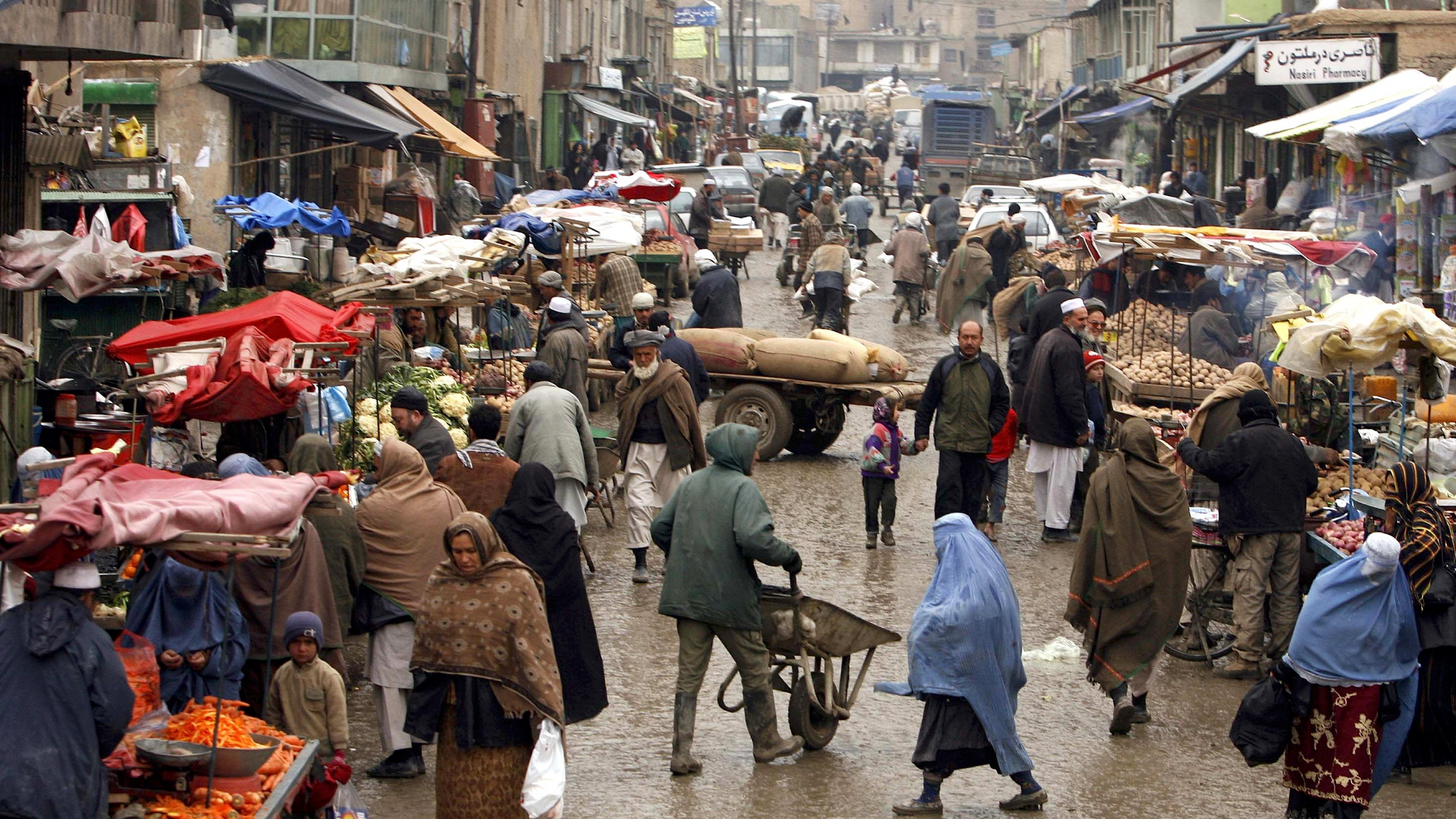
In the end, you have to recognize—as America did by the end in Vietnam, as it has in Afghanistan—that this just isn’t going to work.
Bluhm: One of the unique aspects of Afghanistan is opium production. Afghanistan, even after 20 years of occupation by U.S troops, remains the world’s top producer of the opium for heroin. How does opium and opium production affect the dynamic in Afghanistan today?
Lieven: It supports a huge part of the country. Apart from U.S. aid, it’s the biggest element of the Afghan cash economy. And everybody benefits from it: The Taliban taxes it. A long row of state generals, politicians, warlords, and ministers also live off heroin. It’s literally everywhere.
I have said this to every American official I’ve met, every European official I’ve met: We should be making that a key part of negotiations with the Taliban, as well, because it is doing terrible damage to many societies around the world. Those societies include Russia, Iran, and, to a lesser extent, China, which means that this is at least one way of trying to maintain some degree of cooperation with these countries.
Most importantly, the Taliban have been the only force in Afghanistan for the past 45 years which has succeeded in suppressing opium production and the heroin trade, because they have been the only really strong government that Afghanistan has had for the past 45 years.
One can become trapped by an alliance with a deeply corrupt, deeply dysfunctional, deeply militarily incompetent regime or state into which one pours inconceivable amounts of money and guns, while U.S. soldiers on the ground become more and more cynical and despairing, but somehow this gets filtered out before it gets back to the people at the top.
Any future peace settlement or recognition for the Taliban, or continued aid to a government involving the Taliban—if that can be achieved—must be made contingent not just on the suppression of terrorism, but also on the suppression of the heroin trade.
You’d have to compensate them, but you’re pushing an open door, because the Taliban want to do that themselves, as long as they don’t need the money.
Bluhm: How do you view events playing out in Afghanistan after the departure of U.S. troops, with the Taliban, the central government, and Pakistan?
Lieven: I desperately hope that there will be a political settlement involving the sharing of power between the existing Afghan government and the Taliban, but I am just finding it very difficult to get my mind around that as a realistic prospect—that the government could somehow share power with the Taliban after fighting them for, in many cases, 30 years.
On the other hand, at least in the Pashtun areas, I don’t think that necessarily the change—whenever it comes—will involve massive violence. It’s well-known: Families will send one son to the army and one son to the Taliban. You hedge your bets.
It means that they don’t give a damn who rules in Kabul, as long as the family is protected to some extent.
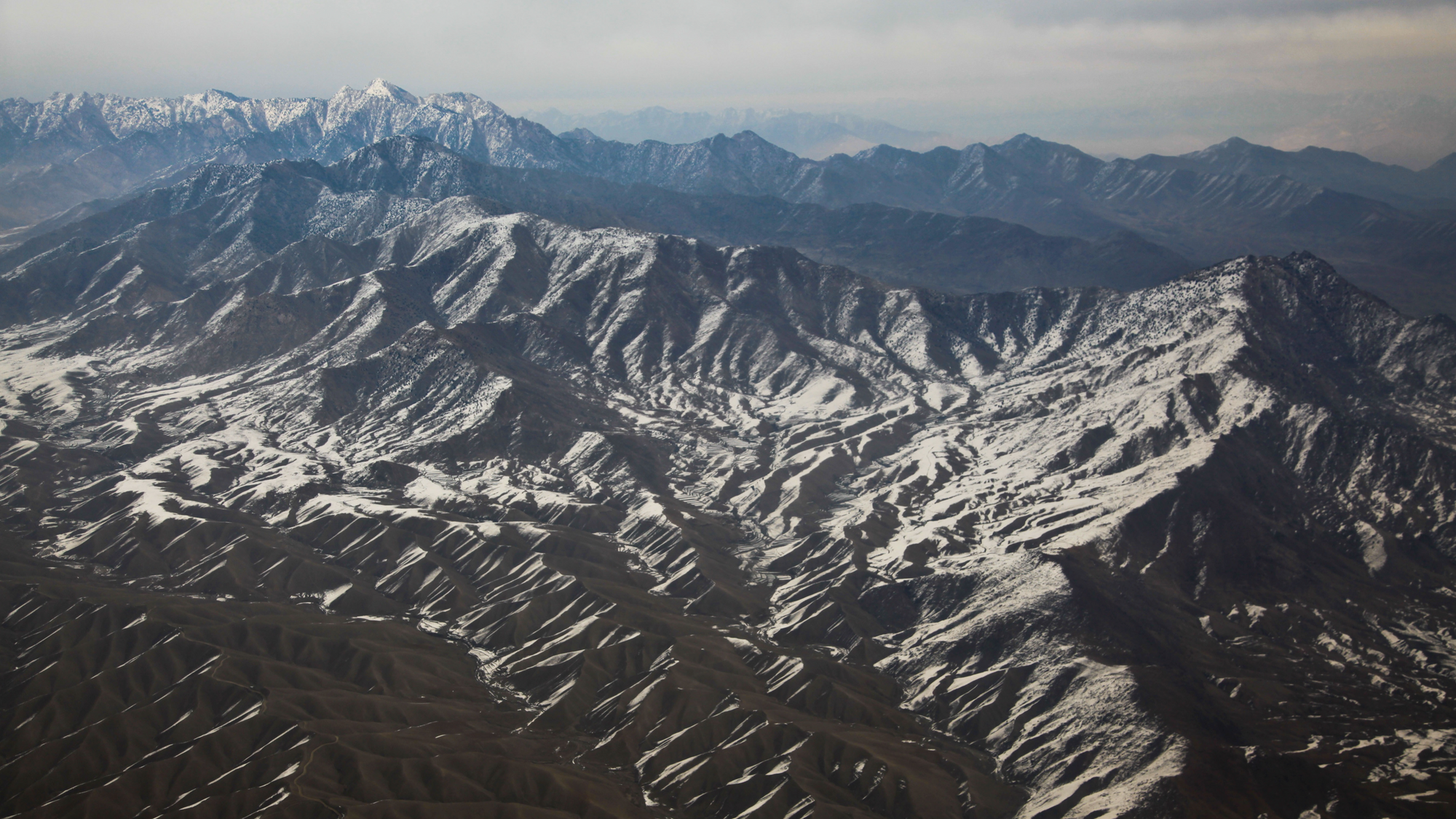
In the south and east, it could go down peacefully and very quickly, as well. Then you get the potential for a dreadful, ongoing, ethno-religious civil war in Afghanistan. But if anyone can stop that, it’s Afghanistan’s neighbors—especially Pakistan can put pressure on the Taliban to compromise or allow regional autonomy.
Bluhm: If Biden does withdraw American troops by September 11, what effect do you think this will have on Biden’s presidency or the United States’ standing around the world?
Lieven: A question I’ve asked people close to the Taliban, again and again, is: Do the Taliban understand the phrase “decent interval”?
If the whole thing hangs together until 2024 and the next U.S. presidential elections—after that, to be brutally honest, I think that most Americans will barely notice what happens in Afghanistan. If the fall of the government follows very, very quickly—within a year or so—of the American withdrawal, that will look bad for Biden.
The thing about Afghanistan is that, although it’s been painful, and God knows a lot of Americans have died, it hasn’t divided and embittered American society nearly as much as Vietnam, partly because far fewer Americans have died. The result in America may just be a shrug of the shoulders. One’s not feeling—bad as it’s been—that this has been a catastrophe for American society and American politics.

